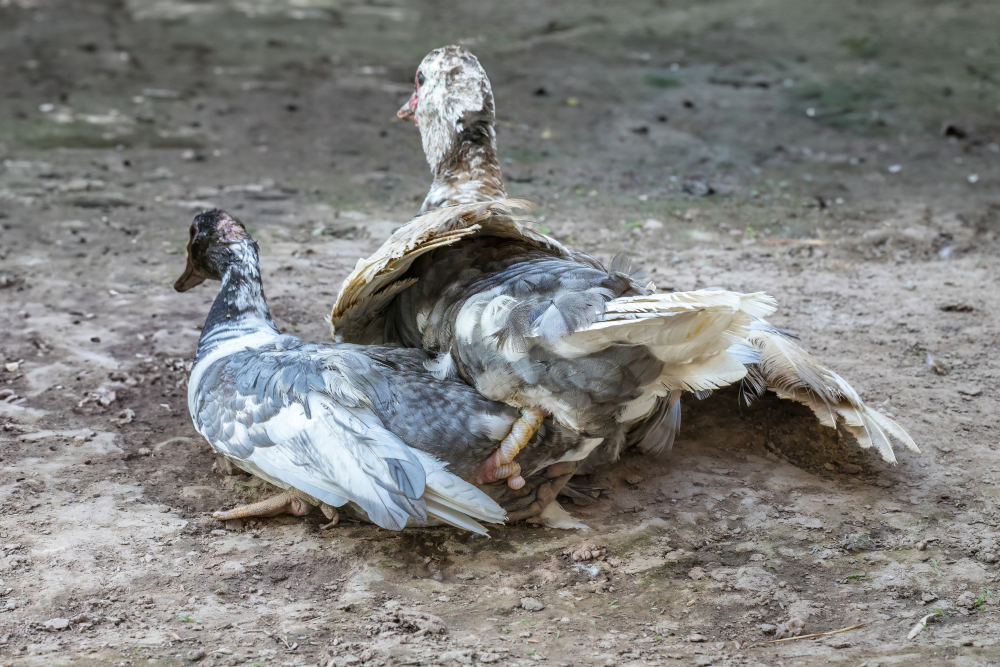It’s 2025 and high time you learned that just 3 percent of birds have penises. Perhaps a shocking statistic for we member-wielding mammals, but nowhere near as shocking as the genital ingenuity seen among the 3 percent of birds that do boast a penis. So gather round folks, and let’s go on exploration of avian genitalia.
The wonders of the cloaca
Birds have fascinating love lives. They leap upon leks sporting all kinds of wacky plumage and dance move combinations to win over a mate, they exhibit widespread monogamy with some seabirds mating for life (even if they do occasionally get divorced), and there’s a lot to be said for the act of mating, too.
Most birds, and by that we mean 97 percent of all species, don’t have external genitalia and instead have what’s known as a cloaca (as did dinosaurs). Seen in birds, reptiles, amphibians, some fish, and monotremes, this one-size-fits-all genital structure facilitates the passage of digestive, reproductive, and urinary matter.
If you’re struggling to visualize such a piece of equipment, perhaps this commercial will help piece some things together for you.
Both the male and female of the species can have a cloaca, and when it’s time to make baby birds, they do what’s known as a “cloacal kiss”. It involves the male and female touching cloacas long enough that the female can receive the male’s sperm, no penis required.
Do birds have penises?
So, what about that 3 percent? According to Patricia Brennan, something of an expert when it comes to bird genitalia, penises have been retained in only the most basal avian species. That includes the Paleognathes, which is your ostriches, emus, rheas, and tinamous, as well as most of the Galloanseriformes within the Neognaths, our ducks and fowl.

The corkscrew penis of a duck in action.
The penises vary in size and morphology, with that of ostriches looking like a giant tongue, meanwhile ducks got very creative with a coiled design that’s adapted to the corkscrew-shaped vagina of females. It’s thought the complex entry way is a defense against unwanted copulation as male ducks can get very aggressive.
How did the chicken lose its penis?
When it comes to penises, chickens are a bit of an odd one. As embryos, they start out with typical penis development that then gets stunted, amounting to only a rudimentary organ by the time they’re fully grown. A 2013 study decided to dive into the mystery, asking why it is an animal group would lose an appendage that would seemingly be so helpful given all birds exclusively reproduce through internal fertilization.
It revealed that at a developmental level, penis development began to arrest and regress for chickens, while ducks’ carried on growing and then coiled in the late stages, creating the corkscrew penises they’re (in)famous for. For some adult ducks, their penis can be longer than their bodies, so how did the chicken lose its penis?
Curiously, gene expression and cell proliferation among the chicken and duck embryos studied were the same, leading the team to believe that the difference came down to cell death. Sure enough, they discovered that chicks undergo a wave of cell death in a region of the genital development that wasn’t seen in ducklings. This points to the penis-tip cell death being a trait that only evolved when Galliformes diverged from other fowl, governed by the expression of a specific bone morphogenetic protein – something that had previously been associated with apoptosis in the genitalia of mice.
So, we may still not know why it crossed the road, but we do know where its penis went.
Source Link: Do Birds Have Penises? For 97 Percent, No, But The Rest Are Wild